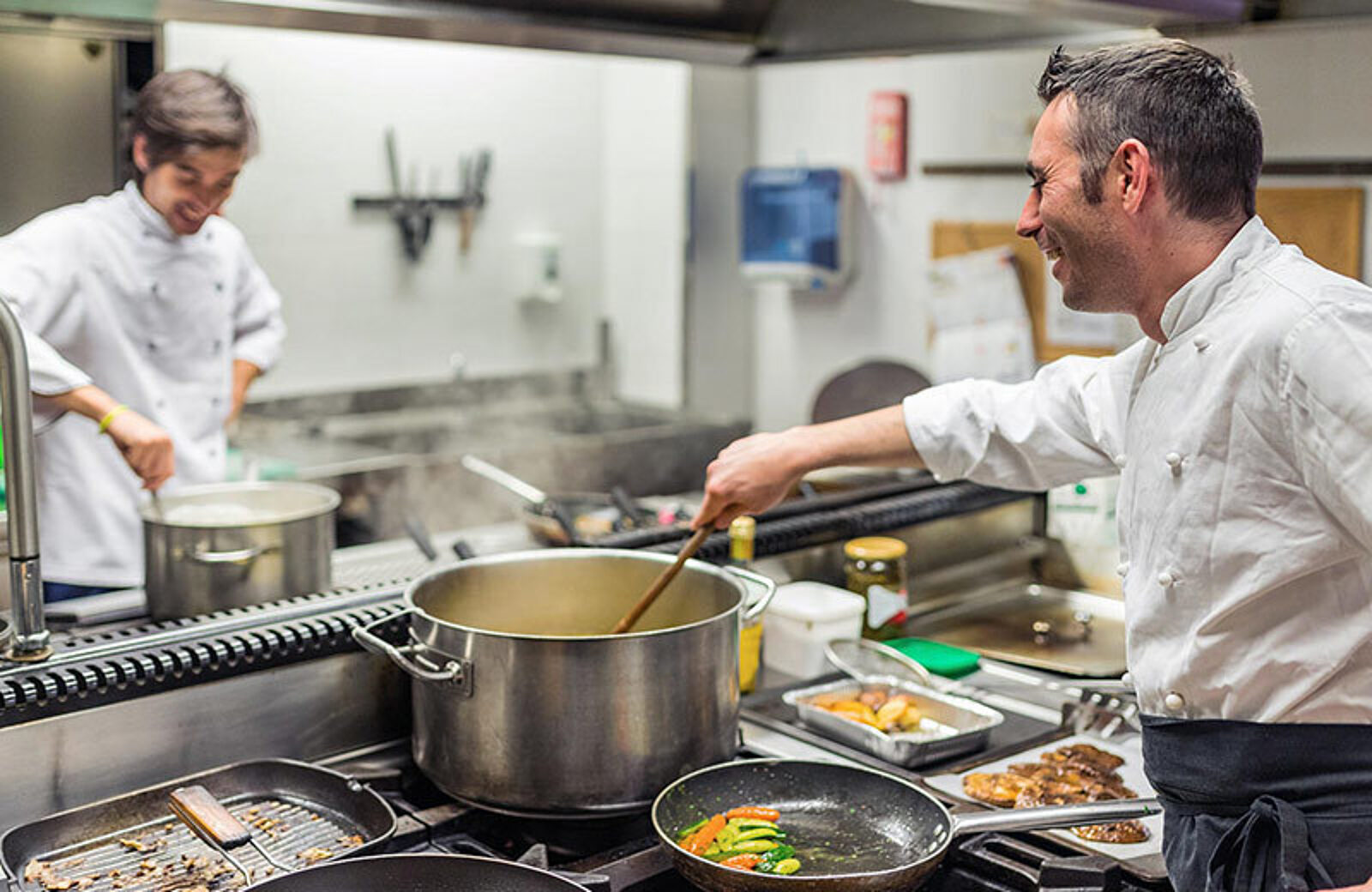Get Your Staff to Help You Create Service Standards

Chelsea VerstegenAuthor
Owning a restaurant means wearing many hats — you’re the decision maker, the inventory manager, the accountant, and the HR team, all in one. You’re also who everyone looks to as the gold standard of restaurant service and guest experience. But all your employees have a stake in your restaurant’s success and should therefore be involved in developing these standards.
Bringing your staff into this process encourages transparency, trust, and ownership and allows you to tap into the knowledge your front-of-house staff gains by interacting with every guest who walks through the door.
Here's some advice from restaurant people on how to work with your staff on creating restaurant service standards.
Listen to Staff Suggestions
You know your customers well, but chances are your employees know them better — especially front-of-house staff. When deciding how to put your restaurant’s best face forward, look to your employees, who are constantly interacting with your guests. Your standards should cover everything your guests experience in your restaurant, so there’s a lot of room for suggestions.
Whether your staff think the table presentation could be improved or propose you run with a smaller staff during slow lunch shifts, you've gotta hear their ideas. Not every suggestion has to be fulfilled, but making your staff a part of the process shows them that their opinion matters and encourages them to take pride in their work.
Remain True to Your Restaurant’s Values Throughout the Process
If there’s one thing to keep in mind when developing your service standards, it should be why you opened your restaurant in the first place. When determining each facet of your service standards, ask yourself and your staff: “Does this reflect our values?” If your mission when opening your doors was to provide a one-of-a-kind dining experience, make sure your standards reflect that. If your goal was to create a second home for your guests, your standards should serve everyone from children to grandparents.
You and your staff should also make sure that your standards match the category of restaurant you fall under. If you are a quick service restaurant, your service standards should center on how quickly you can satisfy your guests. If you’re a fine dining establishment, you may have more time to delight your customers, but your guests are planning to spend significant time in your restaurant, and therefore require more care.
Monitor Guest Reviews
Find out what your guests like and don’t like about your restaurant. Have your staff ask customers for immediate feedback through comment cards, and check your restaurant’s online reviews to see what your customers are saying.
Are there multiple comments on lack of cleanliness, customer service, or food quality? If so, that’s where you should aim to make improvements. Once you’ve implemented your new standards, make sure to check back to see how guests are responding.
Train Your Staff on Your Standards
Once you’ve established your standards for service, make sure your staff know them! Empower them to meet these standards by making sure they know your expectations. All staff, new and old, should be thoroughly trained on these new standards, and they should be posted somewhere staff can review them at any time.
All standards should be reflected in any materials you use to communicate with your staff, including training manuals, employee handbooks, and opening and closing checklists. If you’ve decided on a new table setting style, you can use pictures to show what a perfect table looks like. If you’ve decided on a new cleaning process, update all checklists to reflect the requirements so there’s no confusion. Make everything as straightforward as possible so it can be easily taught to any new hires.
Employee Handbook Template
Outline your restaurant’s staff policies in this customizable Word doc to help restaurant management and staff get on the same page.

Check in and Ask for Feedback
Aside from creating a wonderful guest experience, standardizing your restaurant service allows you to focus on other aspects of your business without having to micromanage. But that doesn’t mean you can be completely hands-off — you should still check in with your staff periodically to make sure that your expectations are being met.
Ask for feedback from your employees on processes that are/aren’t working. If you find your staff is having trouble completing certain checklists, like cleaning, it might be a good idea to break up some of your larger cleaning projects into smaller chunks on different days of the week. Though you want your kitchen to sparkle, it’s probably not necessary to deep clean your walk-in every night — instead, schedule certain shelves to be cleaned each night.
Reflect and Grow Over Time
Just because something worked for you in years past doesn’t mean that will always be the case. As your restaurant grows and your customers change, make sure your restaurant’s standards are reflective of that evolution. For example, if you were once a small restaurant that used pen and paper to take orders but now service hundreds of customers at multiple locations, you’ll need to switch to the restaurant tech that can handle your high volume of orders. (We think Toast is a great option.)
Your hands are always going to be full, but fortunately, your employees can help you up your game. By listening to employees' and customers' ideas, you’ll develop standards of service that go above and beyond guest expectations.
Is this article helpful?
DISCLAIMER: This information is provided for general informational purposes only, and publication does not constitute an endorsement. Toast does not warrant the accuracy or completeness of any information, text, graphics, links, or other items contained within this content. Toast does not guarantee you will achieve any specific results if you follow any advice herein. It may be advisable for you to consult with a professional such as a lawyer, accountant, or business advisor for advice specific to your situation.



